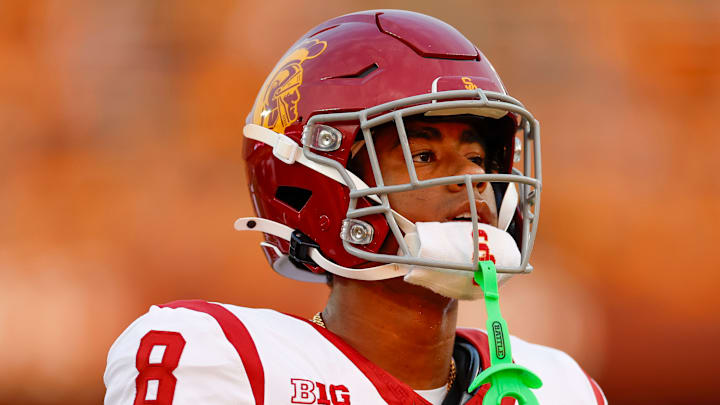Student-athletes earning through their efforts on the field is a positive. There are issues in how the system is currently being implemented throughout college football. What is important to remember, however, is that regardless of how much players are being paid or how long they've been on campus, the goal is the same.
20 years ago, today, and 20 years from now, programs will be judged solely on winning and losing football games. Individually, there is a lot to juggle during the recruiting process. For most, although the players are all aware of needing to have a strong area of academic interest for life outside of football, their aim is to make it to the next level.
How to get there is often the source of a lot of heated debate. Opinions range from the belief that it's better to be the best player on your team, regardless of record. Others believe it's more important to stand out; some differ, viewing team fit and willingness to play within a system to be what are more sought after.
In truth, a little bit of everything is needed to even play at the Division I level. An athlete's skill set needs to be among the top of the given position group, and being able to make plays while being relied on to avoid the costly errors is what all teams look for.
Trojan wide receiver Ja'Kobi Lane shared an interesting post that should be something that more collegiate athletes take to heart. Every situation is different, and there are a number of reasons why someone may elect to transfer or choose a school. Even in an open transfer portal and open-pay era from collectives, the main objective cannot be forgotten.
Truth from USC wide receiver Ja'Kobi Lane
The junior wideout had the following to say on X regarding the role of money in the sport:
"Don’t confuse the main thing college football is for. Get developed and go to the NFL. No amount of college Nil will help you get drafted."
What this message from Lane ultimately comes down to is priorities. If someone elects to chase the promises of higher immediate money, that's a decision that will hopefully have been well thought out and guaranteed in writing.
Even so, without play on the field and continued improvement, interest will soon fade for anyone, regardless of the initial dollar amount. Long-term, it's best to go to a program that truly wants to help an athlete achieve the best version of themselves and will be able to best support their NFL pursuit.
While past seasons may not necessarily reflect this to be the case, at USC, between the support and resources available for Trojan athletes, there isn't a better pLAce to come. Couple the infrastructure with a staff that has been equally well put together by coach Lincoln Riley, and there's something genuinely special being built in Troy.
